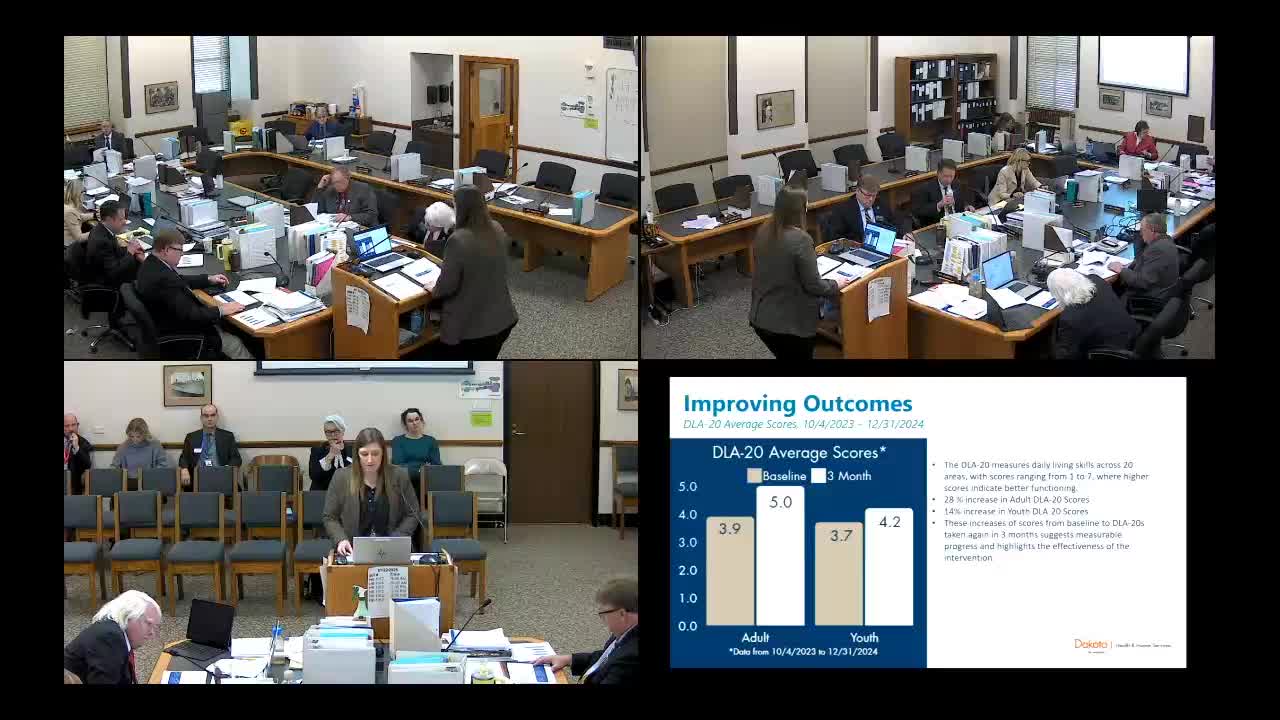Article not found
This article is no longer available. But don't worry—we've gathered other articles that discuss the same topic.
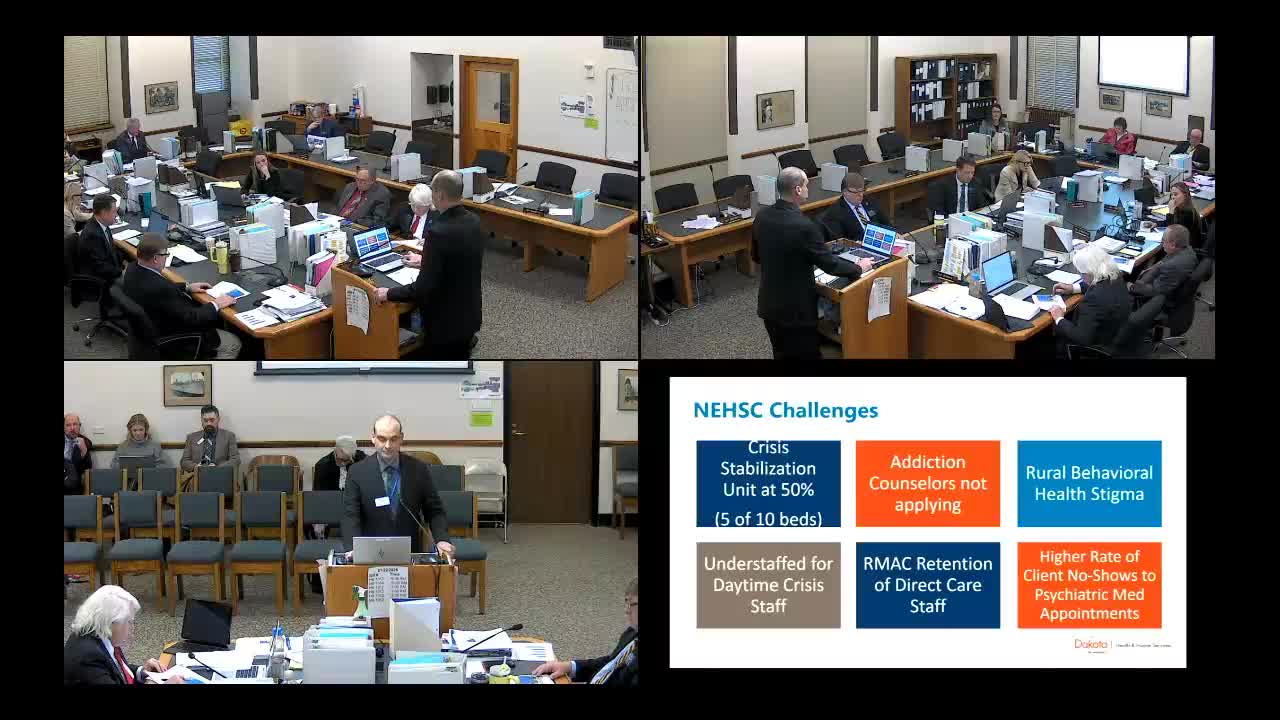
Ruth Myers adolescent center reopens with 10 beds after remodel but directors warn of high staff turnover and safety incidents
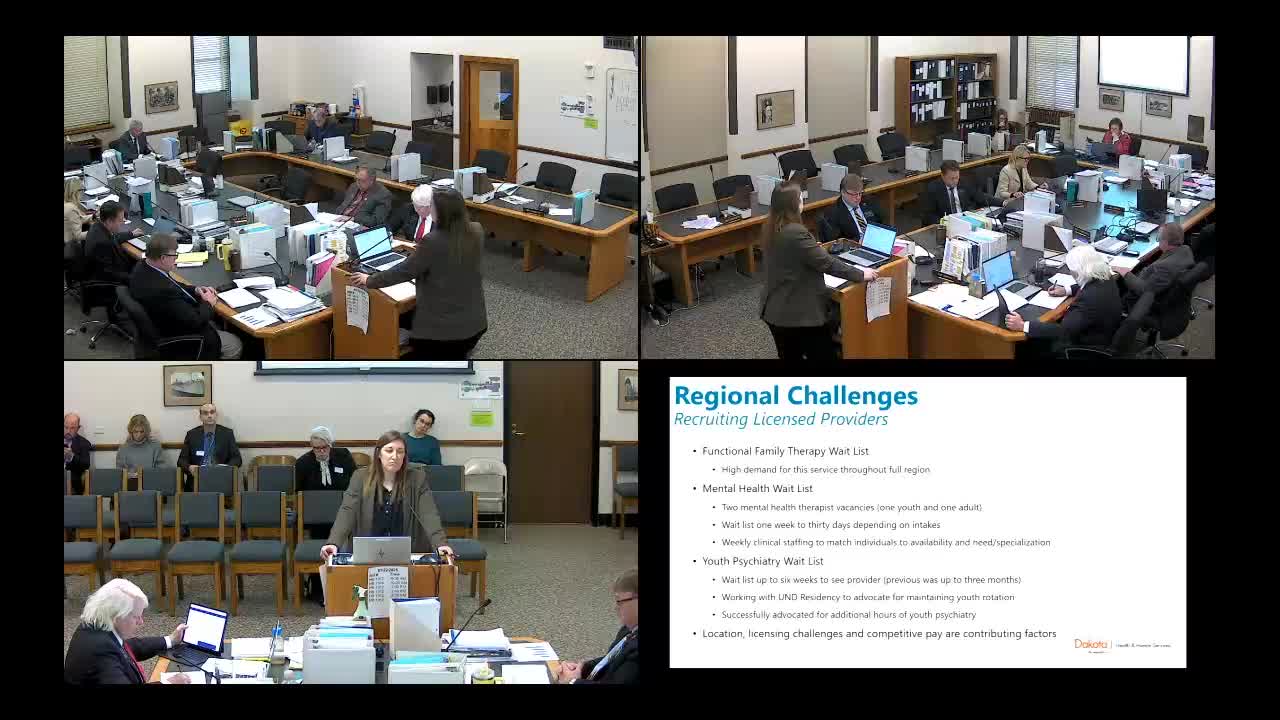
Directors say youth psychiatry access improved slightly but statewide shortages remain; UND residency collaboration cited as mitigation
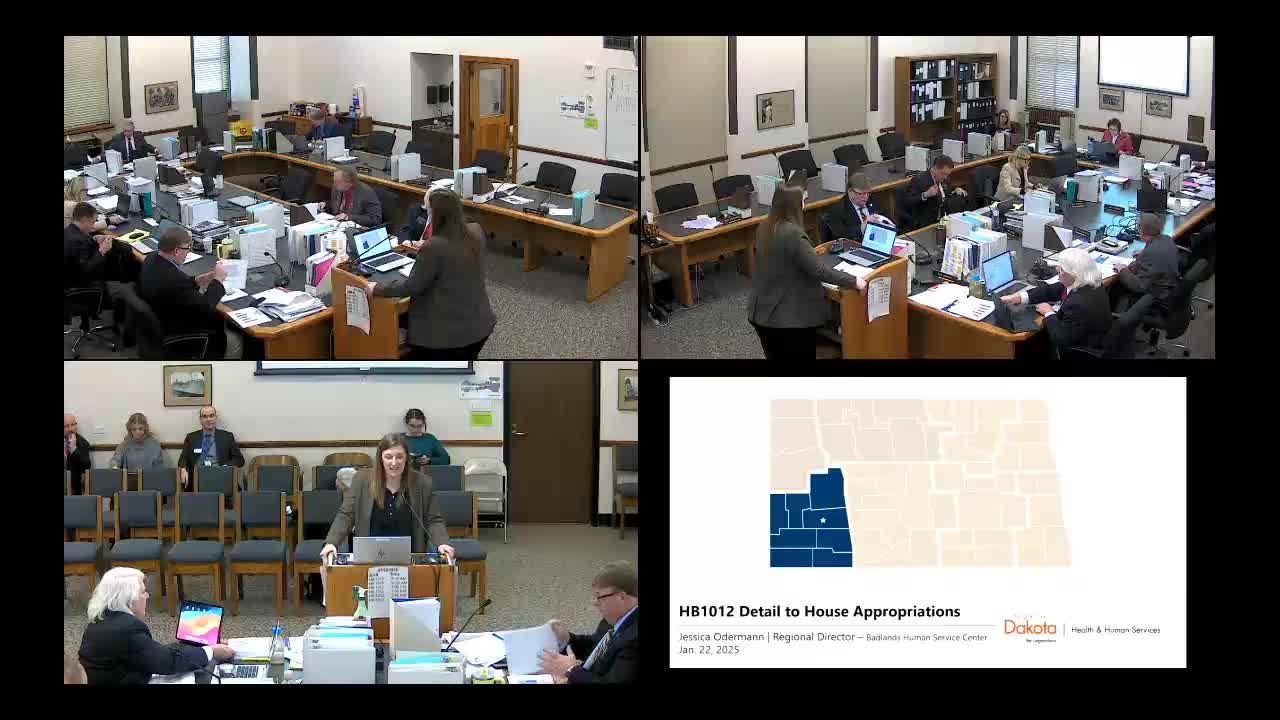
Badlands HSC reports expanded front‑door assessments, on‑site psychiatry and a Suboxone clinic serving 29 clients
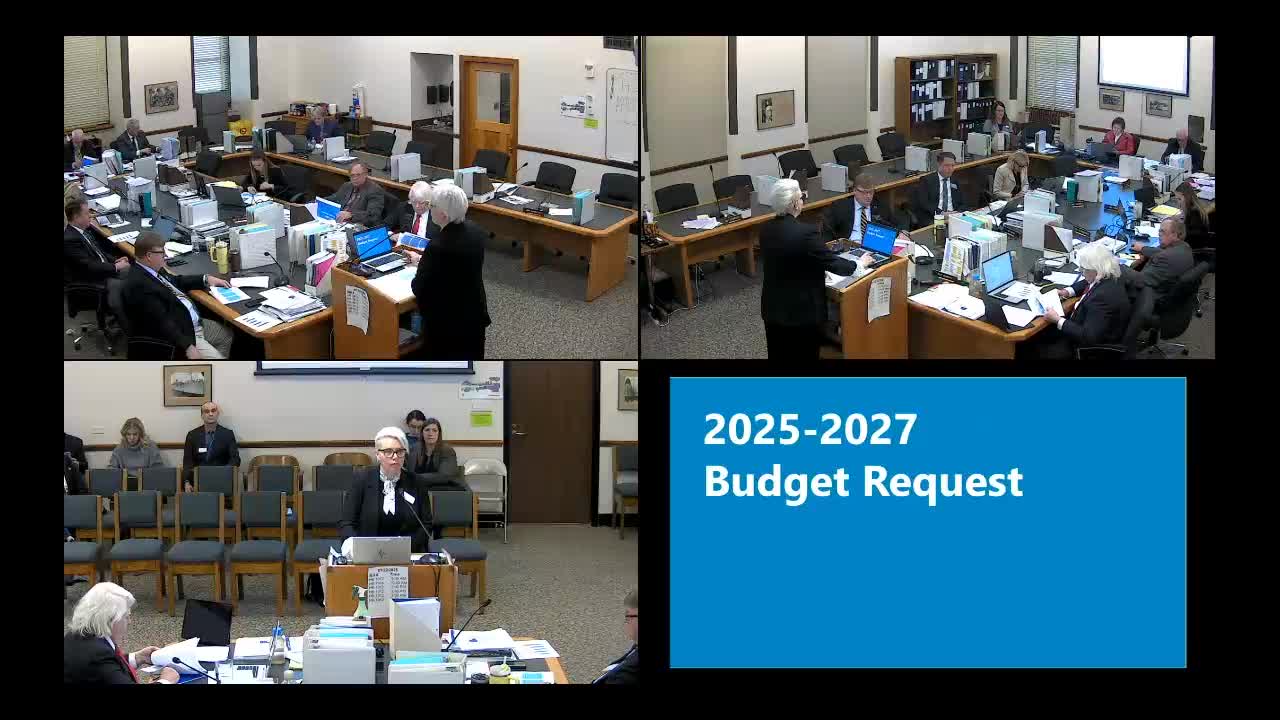
Centers ask for provider‑inflation funding; lawmakers press on residential contracts and building repairs
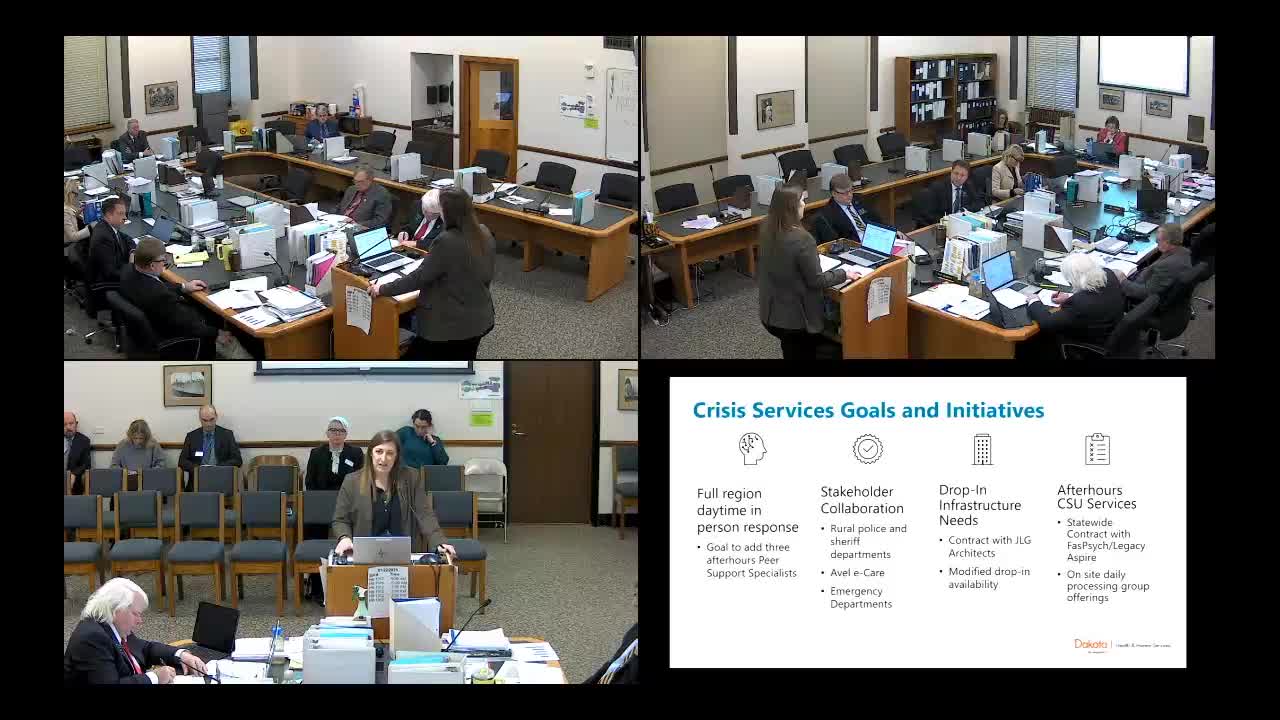
Human service centers describe limits of evening mobile crisis coverage; law-enforcement partnerships used to fill gaps
